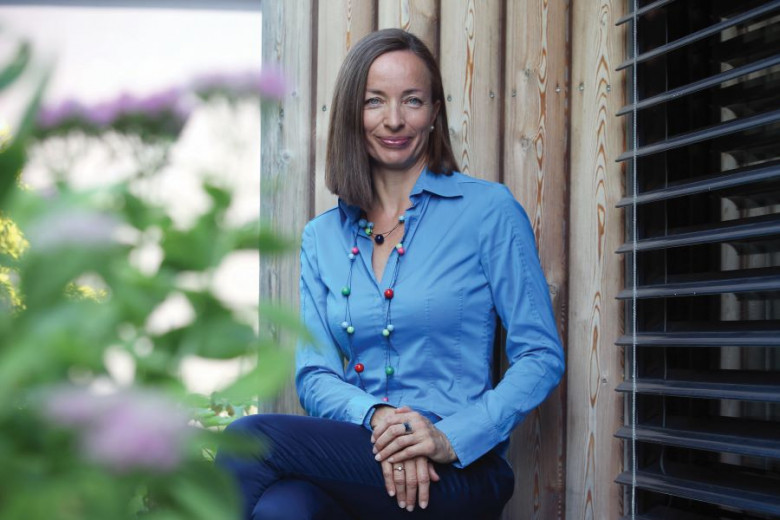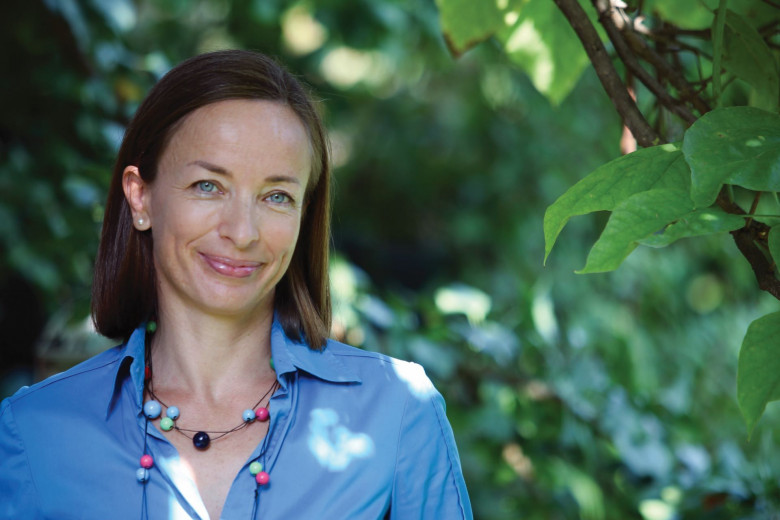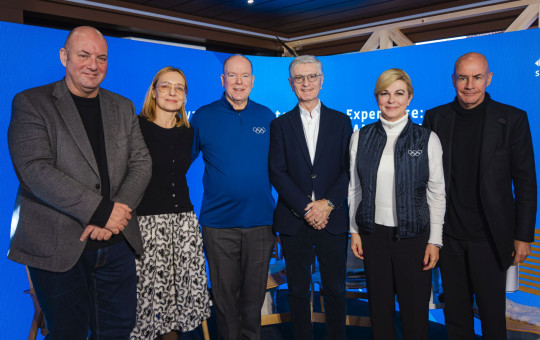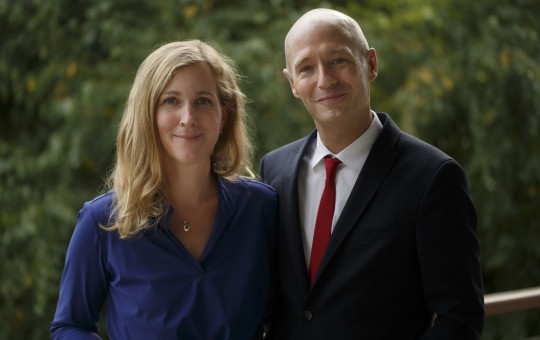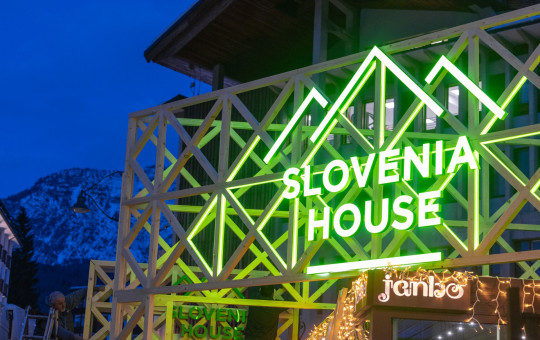Date: 21. November 2019
Time to read: 4 min
Dr Eva Boštjančič, Chair of the Psychology of Work and Organisation at the Faculty of Arts in Ljubljana about creativity, how to nurture it and how to live it
By nature people are creative beings
By nature people are creative beings, but the modern way of life and family life do not always have a good effect on creativity, which is the sole driver of progress. It is only when we think outside the box that we will be different from others and development can take a new direction that is different from that the majority follows. We therefore need to seek new ideas and possibilities for new connections.
The key to success lies in finding what is essential in a mass of information, synthesising and transforming it into something useful, which then makes it easier to take the right decisions. Unfortunately the education system here forces us towards uniformity, and school tests are designed to require precisely such and such a response.
The education system – from kindergarten through primary and secondary school to university – insufficiently encourages creative and critical thinking, and this is the vital thing that cripples success.
You need to identify what a person is really good at, and then you can start thinking differently. In our thinking there is a predominant trend where you need to go to university at any price, but I’m not convinced that this is right for everyone. Many people are creative in their own way, they can choose another path that is not so socially expected and recognised, one where there are still many obstacles, but if you are able to put your idea into practice, there is a high chance of success.
Stress, burnout and positive psychology in organisations
It’s hard to be creative in the workplace if you have too many tasks and deadlines. Creativity develops in environments where employees are given the best chances of connecting with colleagues, where they are able to refresh their professional skills and have enough time to research. In this way it’s easier to build on new ideas. For creativity you need time, since ideas need to be born. You can’t do any of this to a set plan, at a precise time. It’s a process.
Ideas are born in entirely unexpected ways, and a good working environment fosters the kind of space where this happens. It is also important not to criticise every idea, but to properly evaluate and build on them.
It seems to me that in every job being done today in Slovenia you can follow your routine or you can show creativity. This is usually generated in a creative process that happens to you, and if there is no such process then there are no new ideas. We don’t need hairdresser number 120 and baker number 200, we need someone who will do things differently, better, in an interesting way that is attractive to consumers. Education should be what prepares individuals for opportunities – so they can at least identify them – and then they can be able to turn these into business ideas.
Creativity in primary schools and doing away with excessive amounts of information
Yes, even in primary schools teachers sadly prefer to find mistakes and more rarely reward achievements or promote innovation. If, for instance, a child paints Ljubljana Castle red he doesn’t get a good mark, because the castle itself isn’t red. But come on, why do we all need to paint things the same way and according to some prescribed rules? The essence of creativity lies in not everyone having to draw an apple the same way. Society in general does not sufficiently value creative ideas or difference, and those who are different are often criticised.
Creativity is apparent in all areas, even in food preparation, in the way someone combines ingredients – this can be in a very unusual but still delicious way.
Educating a person doesn’t just mean giving them as much information as possible, but also teaching them how to connect all the information together creatively. For instance, how could you apply knowledge of mathematics in the Amazon rainforest, how could you use new knowledge to advance astronomy, of introduce knowledge in chemistry into the search for a better skin cream? The education system should be able to grasp that a creative approach to learning represents great added value, and also answer the question of why it is important to know history – so that we don’t repeat the same mistakes people made before us, or that we can be warned that global conflicts can lead to terrible consequences.
Work environment that’s conducive to creativity
In that kind of environment the employees are committed and motivated to work. For the most part they plan their workday themselves, and know how to and are capable of spicing up their day so they feel good. Creativity in the workplace depends to a large extent on the organisational climate, which takes a few years to form, and it is indeed hard to turn a sleeping dinosaur into an agile gazelle.
And this very transformation from a traditional environment into an agile organisation requires a lot of work on the part of management. They have to change their way of thinking, promote new ideas and seek new business opportunities.
The remnants of socialism still hobble us too much in Slovenia, and we don’t allow young people to breathe fully. In this area there is still a lot of scope for development! Moreover, the old Austro-Hungarian values of being diligent, hard-working, obedient and agreeable at any price are also not very conducive to creativity.
What can parents do about this when bringing up their children?
Uncreative parents have a difficult time raising creative children. First you have to have an awareness of what a creative approach actually offers you, and where its added value lies. As a parent you can show most easily by example how you can be creative, how, for instance, you can make lunch a different way, how you can make the route from home to school more exciting and richer in numerous interesting ways. When I walk my dogs on Rožnik I take a completely different path every day, I don’t always follow the same route.
Creativity is right around the corner for everyone, you just need to be able to see it and experience it. Just link together existing things in a new way.
With children this means that when you give them traditional toys, try to play with them in a different way. The tale of Martin Krpan, for example, can be set in a creative way for children in the modern world of today. What would Martin Krpan do for instance, if he had a mobile phone and a computer, and he could communicate with the Emperor in Vienna online or by Skype? This kind of different and fresh approach can be interwoven everywhere into our everyday activities. It is also important not to criticise, since that kills creativity. Rather, we should evaluate the idea properly, provide feedback, and find what is interesting and different in it. In this way we provide the most encouragement for the creation of new ideas.
Fed up with everything, and struggles to go to work every day
I would tell them to find some additional activity in their spare time, where they can be independent and find relaxation. This encourages greater motivation, and also that we monitor work from start to finish, so the individual is not just a piece in the mosaic, and sees the big picture. The worker who makes the headlight needs to know that this is part of a final product, and that without the headlight the car would not be complete. It is also important that your surroundings provide feedback on how you did something. All this brings variety to the work environment and a greater degree of responsibility.
If a person is not happy in their job, they should at least find some small things to enhance their private life.
The individual is also constantly drawn to balance, but it is important to realise that we must create this ourselves, as society will not provide it. So I would also say to someone who is fed up, don’t be afraid of change, even if you don’t know what will follow. When we make a change we separate ourselves from what is known, from where we function in one way or another. This kind of step forward requires courage to leave the things that do not serve us well and to make some new decisions. You need to be bold, you need to have a certain energy and be prepared for temporary failure.
Being an entrepreneur does not necessarily mean you were born under a lucky star and with the right genetic material, but that you have the right personality characteristics. You know how to fight, you’re prepared to wait for success, and, on the other hand, you recognise the needs of the market, you know how to sell your service or product, you’re persevering, flexible and, of course, creative.
Eva Boštjančič is an associate professor of the psychology of work and organisation at the Psychology Department of the Faculty of Arts in Ljubljana. Her research work is involved in the area of talent, cultural intelligence and management in an organisational environment, returning to work after burnout or after a long illness and so forth. She also advises, conducts workshops, gives talks to employees in the private and public sectors and manages the website www.psihologijadela.com.

